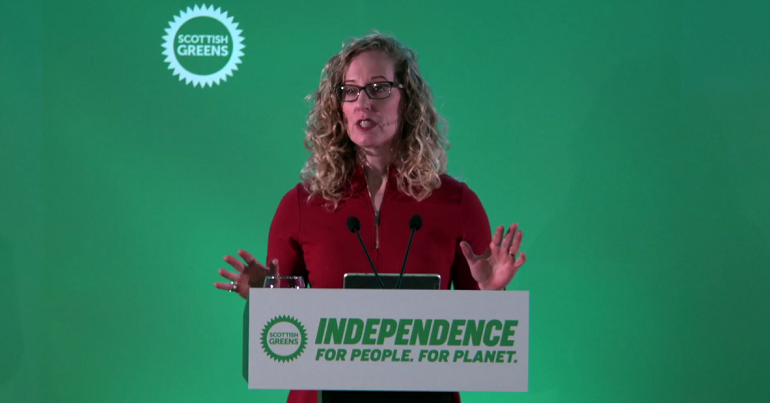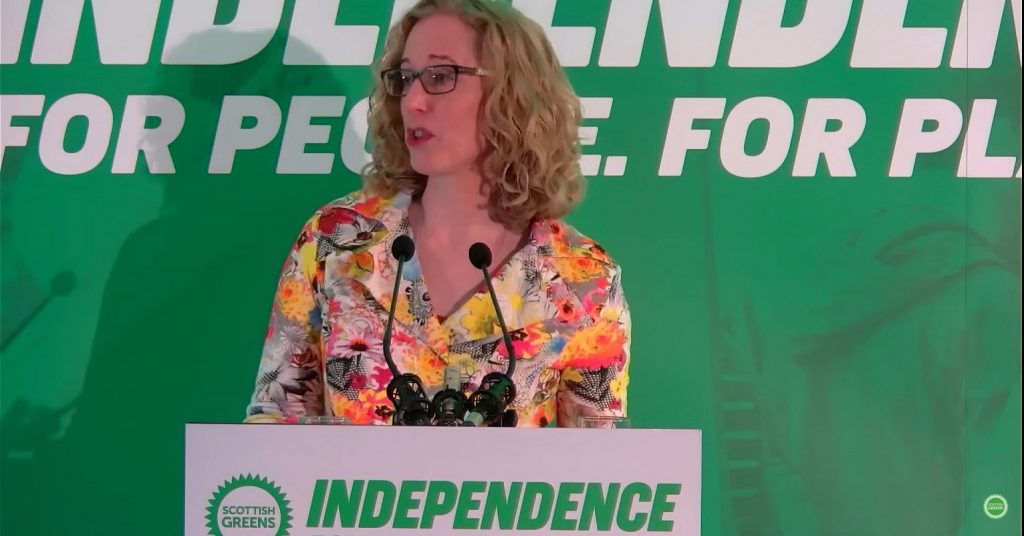The Green Party is the natural home of musicians and creatives

It’s fairly safe to say that most musicians and ‘creative-types’ tend to naturally gravitate towards the left of the political spectrum. Art engenders empathy, compassion and – usually – a clear sense of justice that sits comfortably with left-wing political philosophies. However, it’s not all that common for creatives to dig too deep into the minutiae of electoral politics and the nitty-gritty of policy agendas. The work and lifestyle of creatives tends to lend itself more to broad, philosophical positions rather than detailed policy analysis.
When election time rolls around, many in the creative industries will naturally vote for the Labour party as the obvious ‘opposite-of-the-Tories’ option. But as the Labour party seeks to distance itself from any trace of ‘socialism’, it’s becoming clearer that they are in fact not so far away from the Tories in a lot of ways and their policies and vision for the future are not all that compatible with the best interests of those working in the creative industries.
I strongly believe that the Green Party is the natural political home of musicians and creatives. Here’s why:
Pertinent policies
The Green Party’s policies have for a long time been the most radical and exciting of all the main UK political parties. Some in particular would make a huge difference to the lives of all creative workers, such as a Universal Basic Income (UBI).
UBI has been Green Party policy for decades and is now, after many years of tireless campaigning, starting to become a mainstream idea thanks to the Green Party and other organisations such as UBI Lab. A UBI is simply a payment made to every citizen. No means testing. No degrading benefits assessments. Just a universal payment to ensure everyone can afford to live regardless of their situation. The 2019 Green Party manifesto proposed a UBI payment of £89 per week, with additional payments on top for pensioners, disabled people and so on.
The difference a policy like this would make to the lives of working creatives cannot be overstated. Musicians and creatives are often paid very little, treated badly at work and have to hold down multiple part-time jobs alongside their creative work just to survive. UBI would transform the entire creative industries by giving artists the freedom to choose the way they work and empower them to improve their pay and work conditions.
Sadly, despite its potential to lift millions out of poverty, give individuals autonomy over their work lives and help tackle the climate crisis, Labour aren’t interested. Labour London Assembly Member Len Duvall recently confirmed this when Green Assembly Member Zack Polanski proposed the idea.
Brexit
We all know how disastrous Brexit is for our creative industries and the country as a whole. Something that has been highlighted by names such as Elton John, Yard Act’s James Smith and Sarah Connolly. Six years on from the referendum no one has yet been able to find any substantial benefits arising from our departure from the EU. Despite this, after their incessant flip-flopping on the issue, Labour have now fallen in behind the Tories’ Brexit disaster project, voting through Boris Johnson’s Brexit deal in 2020 and with Keir Starmer stating there is “no case for re-joining” the European Union.
Tracy Brabin, then Shadow Culture Secretary, spoke in the House of Commons about how calamitous Brexit would be for creatives, and then nipped down the aye lobby and voted in favour of it. This highlights the problem with the whip system, which parties use to control how their MPs vote. The Green Party rejects the whip system completely. All elected Greens are free to vote in the best interests of the people they represent, free of instructions and threats from above.
Labour’s abandonment of creatives hit hard by Brexit has left a sour taste in the mouths of most of us. Brexit has been career-ending for many, particularly those whose income was derived mainly from touring but it seems the Labour Party aren’t interested in fighting our corner.
The climate emergency
Unsurprisingly, a recent survey by Music Declares Emergency and Glasgow University found that 82% of music fans were concerned about climate change compared to 72% of non-music fans. The survey also concluded that, “In addition to being more likely to view climate change as a serious issue, results also show music fans as being more likely to place a priority on efforts to tackle climate change.”
Now it goes without saying that the Green Party has the strongest policies on climate change. And, despite talking the talk, the Labour Party’s climate policies fall far short of what is required to tackle the emergency before us. Their inexplicable position on nuclear energy (which is incredibly expensive and would take far too long to make a significant difference) and their plainly odd obsession with building new roads (which only increase traffic congestion, and therefore air pollution and emissions) show just how far removed they are from the reality of the climate and nature crises.
It would be remiss of me to tar all Labour politicians with the same brush here. There are some Labour MPs doing brilliant work in the sector such as Alex Davies-Jones, and Kevin Brennan who has been campaigning hard to fix the broken music streaming system.
Sadly though, if we zoom out from specific people and campaigns, it’s clear that the party those individuals represent don’t have the best interests of the creative industries at heart. This is probably an unfortunate symptom of their shift to the right and their attempts to ‘out-Tory’ the Tories. But thankfully, there is a political home for creatives – one that fully understands the value our industries bring, financially and culturally, and is full of individuals like Amelia Womack and Caroline Russell, to name just a couple, who are working tirelessly to bring about genuine, meaningful change that will benefit us and everyone around us. That home, my friends, is the Green Party.
PS. We hope you enjoyed this article. Bright Green has got big plans for the future to publish many more articles like this. You can help make that happen. Please donate to Bright Green now.



Leave a Reply